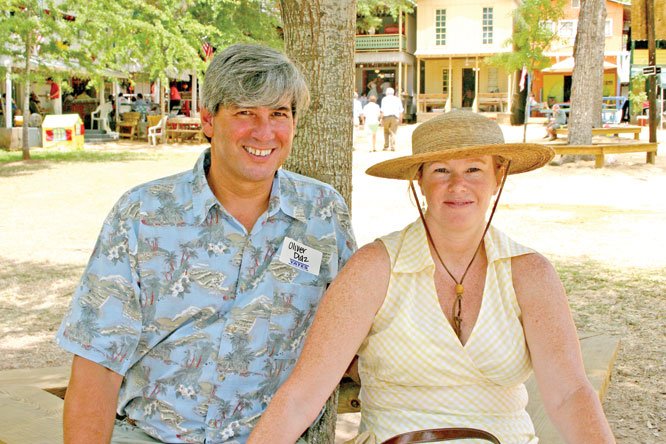Mississippi Supreme Court Justice Oliver Diaz praised the U.S. Department of Justice's May decision to investigate cases of "political prosecution" against him. Photo by Adam Lynch
After months of investigation by the U.S. House of Representatives Judiciary Committee, the Justice Department has subpoenaed former Bush White House political adviser Karl Rove to testify about alleged political prosecutions, including probes two prominent Mississippians, lawyer Paul Minor and Supreme Court Justice Oliver Diaz.
The DOJ's Office of Professional Responsibility wrote a May 5 letter to House Judiciary Committee Chairman U.S. Rep. John Conyers, Commercial and Administrative Law Subcommittee Chairwoman U.S. Rep. Linda Sanchez and others saying that it was moving forward on "allegations of selective prosecution relating to the prosecutions of Don Siegelman, Georgia Thompson, Oliver Diaz and Paul Minor."
The letter, signed by OPR Counsel H. Marshal Jarrett, promised to advise committee members of the results of those investigations "when they are concluded."
"It shows something that they're investigating," said Paul Minor's father Bill Minor, who maintains that the Republican-run U.S. Department of Justice pursued his son's charges with the goal of getting Paul out of the position to donate money to state Democratic campaigns. "It's pretty late in the game, but still better than nothing."
The U.S. Attorney's office unveiled multiple indictments against Minor for judicial bribery in 2003 and again in 2006. They indicted Diaz for bribery in 2003 and tax evasion in 2006.
A jury found the prosecution's case against Diaz flawed in both instances, and once in Minor's. The prosecution had an easier time convincing a jury of Minor's wrongdoing in 2006 after Judge Henry Wingate ruled out the necessity of quid pro quoproof of briberyin Minor's case. Wingate also allowed prosecutors to tell the jury that the allegedly "purchased" rulings could be perfectly "legal and correct."
Diaz told the House Judiciary Committee in 2007 that he feared the U.S. Justice Department pushed local U.S. Attorney Dunnica Lampton to pursue charges against him, even though the indictments were shaky. A 2007 academic study published by University of Missouri communications professor Donald Shields suggests the U.S. Department of Justice had a preference for hunting Democrats. The report found that of 375 investigations released to the public, 10 involved independents, 67 involved Republicans, and 298 involved Democrats.
Lampton had no comment, but denied any political influence in the case against either Minor or Diaz in earlier Jackson Free Press interviews.
Testimony to the House Judiciary Committee from Alabama attorney G. Douglas Jones regarding the conviction of former Gov. Siegelman reveals that Jones heard Alabama Assistant Attorneys General say they "hoped" that a local Medicaid fraud case "would reach the highest level of the Siegelman administration, even though there was no evidence to suggest that at that point."
Siegelman was convicted in 2006 of bribery and mail fraud and sentenced to seven years, but is out awaiting an appeal. Siegelman told the JFP that he believed prosecutors pursued his case with Rove nipping at their heels all the way. He said the OPR office, which is an arm of the U.S. Department of Justice, investigating the issue could be compared to "asking the chickens if they feel comfortable with the fox guarding the hen house."
"Karl Rove has had eight years to get his people embedded in the office. I have no reason to have anything other than high regard for H. Marshall Jarrett, but I don't know him. I don't know anybody's background, so I can't really speak on them," Siegelman said.
One of Siegelman's lawyers, Vince Kilborn of Alabama, said he had met with the Judiciary Committee's lawyers and Chairman Conyers, and felt Jarrett could be an independent party to the investigation.
"The Judiciary Committee has faith in him. He's a career guy. He's been there a while," Kilborn said.
Diaz said he viewed the opening of the investigation as "a positive development," and said he believed he had "no reason to think that OPR is going to do anything but their job and fully investigate this serious matter of political prosecution."
Bill Minor, however, whose son has been trying to wrangle case transcripts out of Judge Wingate's court since last September, questioned how effectively even the most critical OPR assessment could affect the real perpetrators.
"There's no telling what effect it will have, if any, on the people up the line who were the decision-makers in this process," Minor said.



Comments
Use the comment form below to begin a discussion about this content.